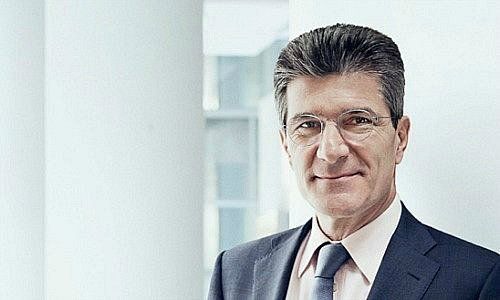The scions of private banking dynasties have to do more than just show up to join centuries-old partnerships, a veteran banker says.
Patrick Odier of Switzerland's venerable Lombard Odier banking dynasty is 62 – an age where most so-called banquier privés, or private bankers who own and run their firms, think about succession. The father of three children as well as three step-children, is clearly doing so, according to an interview with the «Business Times».
«My children will never be appointed partners because I say so. If they are interested, they are appointed because other partners think (they) will be the best fit for the job,» he told the newspaper.
Rejuvenating Ranks
Odier's comments address widely-held views that «banquier privés» mainly choose new partners based on the right heritage. «There is no automatic right for the next generation to be in the business,» Odier said.
The issue of succession has taken on renewed significance following two high-profile moves in Geneva in recent month: Boris Collardi gave up the CEO job at Julius Baer for a partnership at Pictet, while Lombard Odier recently rejuvenated its aging partnership with Annika Falkengren, formerly the long-standing CEO of Swedish bank SEB.
Prestige, Tradition, Money
Clearly, heritage does help: in Switzerland, rules dictate that private banks must have at managing partner from their founding family to be able to retain their often centuries-old name – Lombard Odier was founded in 1796.
The secretive financial mechanics of partnered private banks also draw attention, mainly because they are often highly profitable: Union Bancaire Privée turned a 220 million Swiss franc profit last year, while Pictet's profits surged to 572 million francs.
Highly Lucrative
The partners alone – in Pictet's case, six men; at Lombard Odier, six men and one woman – decide how much of the profits are paid out to partners as dividends and how much is reinvested. The «banquier privé» role is not just one immense prestige and tradition in banking circles, but also highly lucrative.
However, new partners buy in when they join – often in stages to make it more financially digestible – and leave again at book value, not market value. In short, partners do it for the glory, not for the profits.
Transmitting the Firm
«Our incentive is geared towards transmitting the firm to a better shape, to the next generation,» according to Odier. To be sure, most partners will have earned handsomely in the intervening years.
Private banks such as Pictet also have a lending facility to ease the one-time financial hit from joining, and the loan is paid off over a period of many years when partners draw their profits.
Children Joining?
The mechanism is meant to foster the long-term thinking that private banks argue is the key to their longevity compared to newer firms such as UBS.
Like most private banks, Odier keeps a discreet curtain wrapped around the bank's inner financial workings, preferring to talk up Lombard Odier's other qualities instead.
Serving Other People’s Interests
«When it comes to business, we always had the view that we were serving other people’s interests,» he said. It remains to be seen whether Odier's six offspring, aged 23 to 40, will join him at the bank.



































